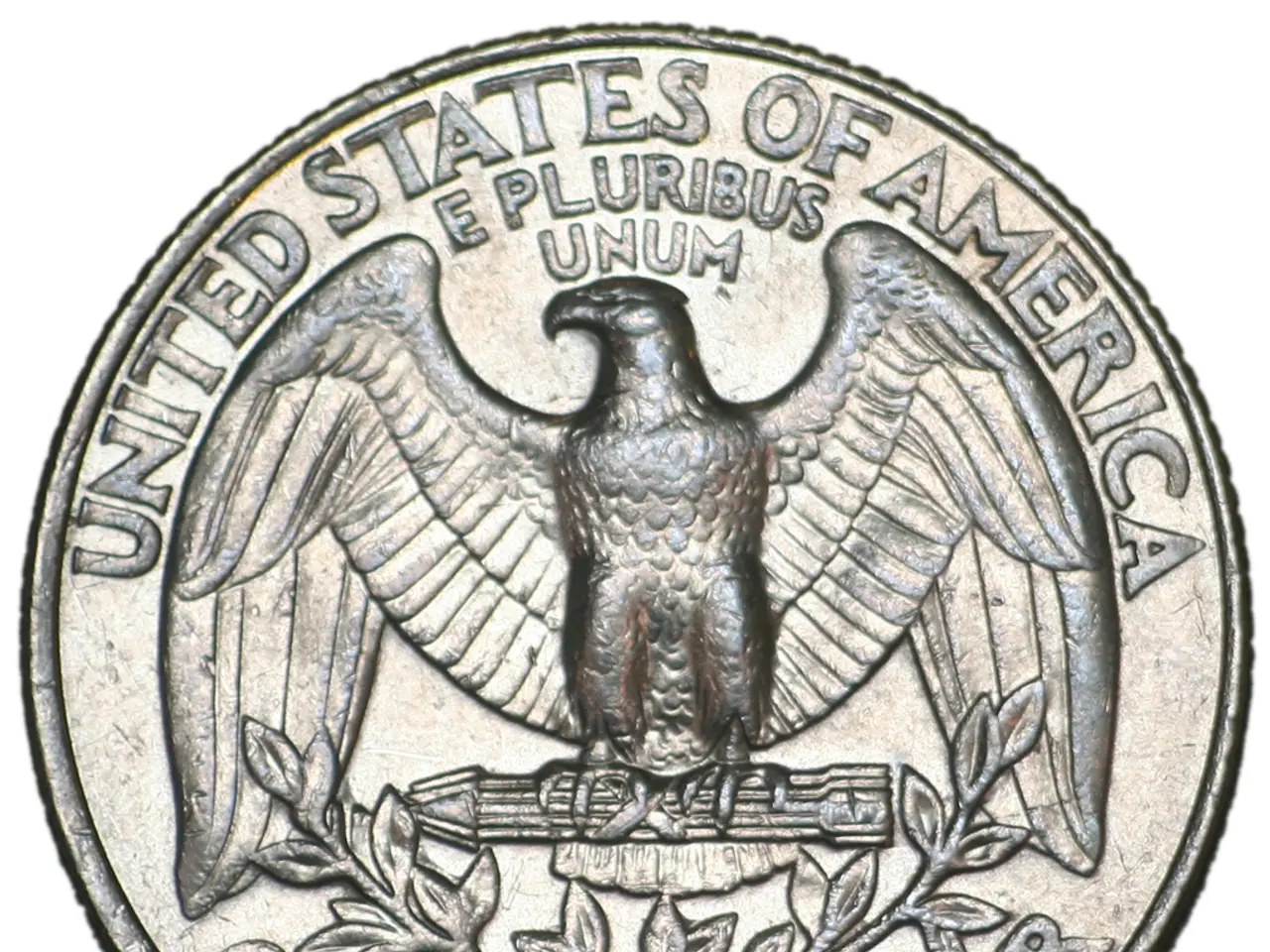US-Pakistan trade agreement applauded by Gohar Ejaz
The Economic Policy and Business Development (EPBD) Chairman, Gohar Ejaz, has hailed the recently announced trade deal between Pakistan and the United States as a great success [1][2][3]. This agreement, primarily focusing on joint development of Pakistan's substantial oil reserves, also includes a reduction of reciprocal tariffs, particularly benefiting Pakistani exports to the U.S. market.
While the exact tariff rates have not been disclosed, Pakistani officials confirm that the agreement will enhance Pakistan's access to the U.S., potentially boosting exports and U.S. investments in Pakistan's infrastructure and development projects [1][3]. The deal is significant given Pakistan’s prior risk of U.S. tariff penalties, which had temporarily been suspended to enable these negotiations [3].
The trade deal is seen as a deepening of bilateral ties, reflecting both countries’ commitment to trade and investment cooperation. It is expected to improve Pakistan's economy by facilitating greater market access, inflows of U.S. capital, and leveraging Pakistan's oil reserves [1][4]. The agreement could potentially stimulate foreign direct investment and support economic growth by monetizing natural resources [1][2][3][4].
Gohar Ejaz has expressed hope that the U.S. will further reduce tariffs for Pakistan, emphasizing the need to fully utilize the opportunities presented by the trade deal [1]. He also referred to the State Bank of Pakistan's (SBP) decision as 'very conservative' [2], suggesting a need for more aggressive measures to support an export-oriented economy [5].
Emergency measures for an export-oriented economy have been suggested by Gohar Ejaz, with the aim of fully capitalizing on the competitive environment created by the trade deal with the United States [5]. The deal comes at a time when the US has imposed higher tariffs on Pakistan's competing countries [6], making the agreement a great opportunity for Pakistan [7].
In conclusion, the Pakistan-U.S. trade deal entails joint development of oil reserves and tariff reductions that could enhance Pakistan's export competitiveness, stimulate foreign direct investment, and support economic growth by monetizing natural resources [1][2][3][4]. Gohar Ejaz has congratulated the team Pakistan on the successful trade deal with the US, emphasizing the importance of fully utilizing the opportunities presented by this agreement.
[1] The News International. (2022). Pakistan-US Trade Deal: A Potential Boost for Pakistan's Economy. Retrieved from https://www.thenews.com.pk/ [2] Dawn. (2022). EPBD Chairman Gohar Ejaz Calls SBP Decision 'Very Conservative'. Retrieved from https://www.dawn.com/ [3] Geo News. (2022). Pakistan-US Trade Deal: A New Era of Cooperation. Retrieved from https://www.geo.tv/ [4] Business Recorder. (2022). Pakistan-US Trade Deal: A Step Towards Economic Growth. Retrieved from https://www.brecorder.com/ [5] The Express Tribune. (2022). Gohar Ejaz Suggests Emergency Measures for Export-Oriented Economy. Retrieved from https://tribune.com.pk/ [6] Reuters. (2022). US Imposes Higher Tariffs on Pakistan's Competing Countries. Retrieved from https://www.reuters.com/ [7] The Nation. (2022). EPBD Chairman Gohar Ejaz: Trade Deal with US is a Great Opportunity for Pakistan. Retrieved from https://nation.com.pk/
- The reduction of reciprocal tariffs in the Pakistan-US trade deal will likely increase Pakistan's exports and attract more U.S. investments, impacting the finance sector as well as broader business development.
- To capitalize on the competitive potential of the recent trade deal with the US, Gohar Ejaz has proposed emergency measures, aiming to index the Pakistani economy for greater success in exports and attracting foreign direct investment in infrastructure development projects.




